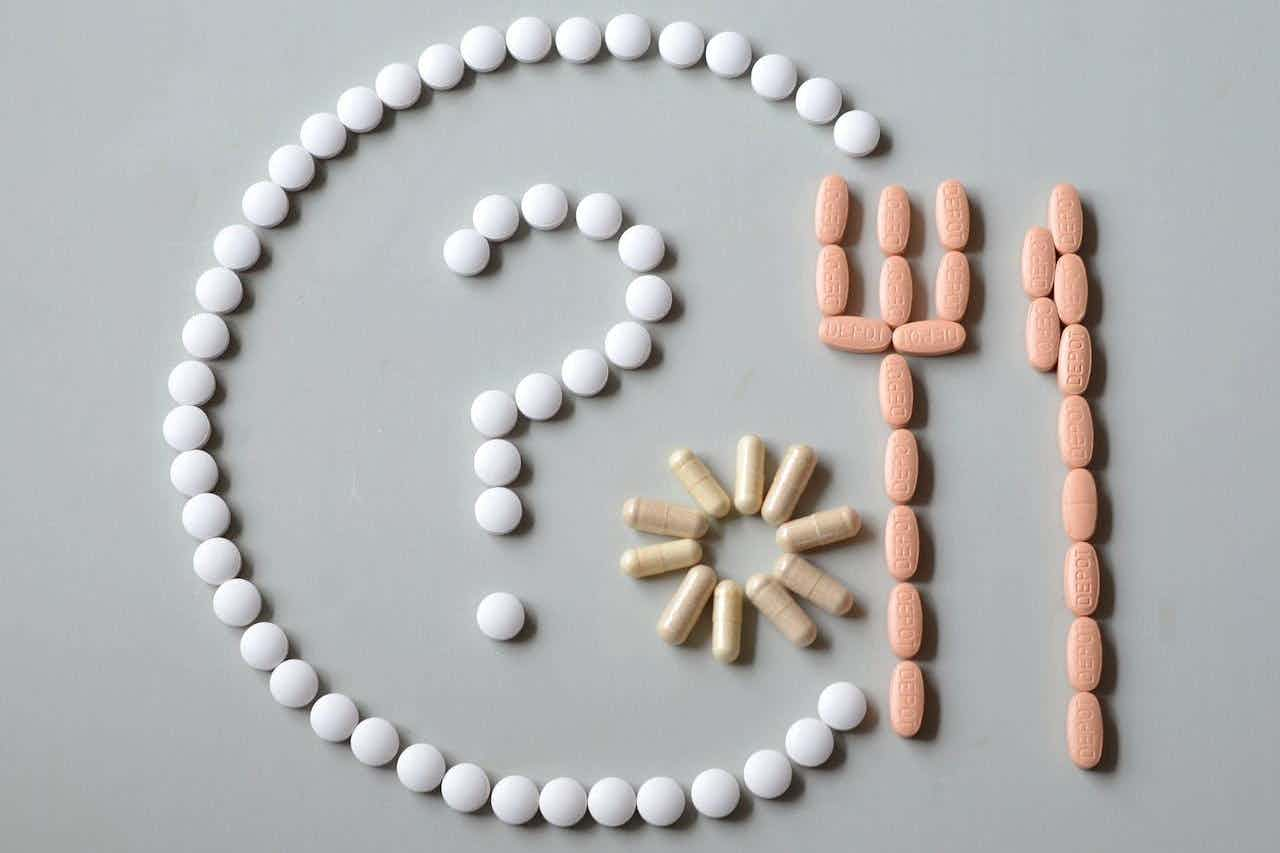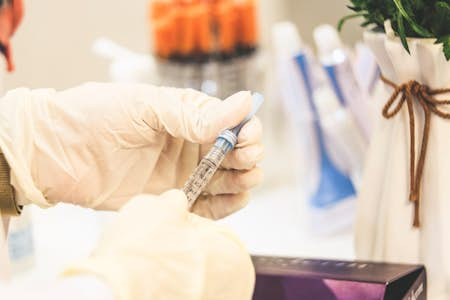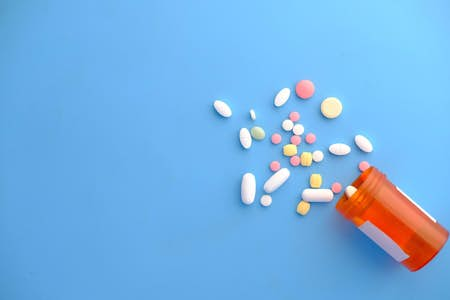The federal government's health statisticians estimate that about one in every 10 Americans takes an antidepressant. Although you can eat and drink as normal when taking mirtazapine, there are several things to be mindful of while taking this FDA-approved antidepressant.
The list of foods, drinks, and supplements you should avoid while taking mirtazapine includes:
- Grapefruit and grapefruit juice.
- Caffeine.
- Alcohol.
- Tyramine-rich foods, including aged cheeses and processed meats.
- Certain herbs, including St. John wort and Kava.
Let’s explore these in more detail and learn more about mirtazapine.
Whether you're looking for the latest vitamins and supplements, want to stock up on over the counter medication, or are looking for a digital solution for your regular prescription, our providers have you covered. Compare brands below and click on your favourite to shop their best offers now!
Foods to avoid while taking mirtazapine
Grapefruit
Grapefruit and its juice can interact with certain medications, including mirtazapine, potentially affecting how your body metabolizes the drug. It does this by inhibiting specific enzymes in your liver, leading to higher drug concentrations in your bloodstream and blood cells, which can result in possibly harmful effects.
It's a good idea to avoid large quantities of grapefruit or grapefruit juice while on mirtazapine.
Caffeine
Caffeine has the potential to disrupt your sleep, resulting in fatigue and tiredness the next day. Even though mirtazapine might make you feel drowsy, it's important not to consume too much caffeine to counteract it because that could affect how well the medication works. Try taking mirtazapine before you sleep so you can avoid reaching for caffeinated food and drinks during the day.
Foods with naturally high caffeine content include coffee, tea, and dark chocolate.
Tyramine-rich foods
Tyramine is a compound found in various aged, fermented, or preserved foods. While it's not a strict rule for everyone, in some cases, consuming high levels of tyramine-rich foods can increase blood pressure.
Foods that you should be cautious about over-consuming include aged cheeses, processed meats, and fermented products like sauerkraut.
Herbs to avoid while taking mirtazapine
There are certain herbs and supplements that you should be cautious about when taking mirtazapine as they can potentially interact with it, either intensifying its effects or causing unwanted side effects. Here are some herbs to be mindful of:
St. John’s wort
St. John’s wort is a common herbal remedy widely used to treat mild or moderate depression. However, you should avoid taking St. John’s wort when taking mirtazapine, as it can increase serotonin levels in the blood. Although the brain needs serotonin to combat low mood and depression, too much of this chemical can lead to serotonin syndrome.
Taking St. John’s wort and mirtazapine together can also lead to an increase in heart rate and blood pressure.
Kava
Kava is an extract made from the Piper methysticum plant and is used to promote relaxation and reduce anxiety. However, it may increase the sedative effects of mirtazapine, potentially leading to excessive drowsiness and impaired cognitive function.
Valerian root
If you're considering valerian root as a natural sleep aid alongside mirtazapine, it's crucial to be aware that their combination can amplify drowsiness. This may lead to excessive daytime sleepiness and reduced alertness.
Mirtazapine, recreational drugs, and alcohol
Alcohol is a depressant that impacts the brain and can worsen antidepressant side effects. Combining alcohol and mirtazapine can lead to dizziness, drowsiness, and concentration difficulties.
It also makes it harder for mirtazapine to work correctly; none of us feels ourselves after a day of drinking anyway! Healthcare professionals advise abstaining from alcohol initially to assess its impact on cognition and foster better judgment and mental clarity.
Using recreational drugs, such as cannabis, alongside mirtazapine can yield similar issues, including sleepiness and reduced mental clarity, when combined with this antidepressant.
How does mirtazapine interact with other medications?
Many drug interactions with mirtazapine come from the excess serotonin they can create in our brains. For example, medications with high levels of lithium or tryptophan can lead to serotonin syndrome when taken alongside mirtazapine.
There are a few other medications that you should not take with mirtazapine:
- Monoamine oxidase inhibitors (MAOIs), a type of antidepressant, can be dangerous when taken with other antidepressants like mirtazapine. MAOIs include tranylcypromine, phenelzine, linezolid, and isocarboxazid. Inform your doctor if you have ever taken MAOIs, even if you are not currently taking them.
- Strong medications like Tramadol, diazepam, and morphine can worsen the side effects of mirtazapine because they affect the central nervous system, potentially leading to increased drowsiness, dizziness, and respiratory depression when used in combination.
- Mirtazapine can interact with anticoagulants like warfarin and epilepsy medicines, including carbamazepine and phenytoin, by inhibiting or inducing certain liver enzymes responsible for breaking down these medications.
- Methylene blue can interact with serotonergic psychiatric medications, such as mirtazapine, and cause serious central nervous system toxicity.
What are the side effects of mirtazapine?
Sleepiness is a common side effect of many antidepressants, including mirtazapine, amitriptyline, and escitalopram. Healthcare providers often suggest taking these medications at bedtime to minimize this side effect.
Other common side effects of mirtazapine include:
- Drowsiness.
- Increased appetite and weight gain.
- Diarrhea.
- Constipation.
- Feeling sick.
- Mild headaches.
- Dry mouth.
Mirtazapine can lead to suicidal thoughts in some people. It can also cause other serious side effects like hives, trouble breathing, and allergic reactions. Additionally, you may experience mouth blisters, irritation, and sore throats after taking this medication.
Serotonin syndrome, a rare form of mirtazapine poisoning, and hyponatremia, a low sodium level in the blood, are other potential side effects. If you experience any complications or suspect an overdose, contact your GP immediately. They can offer full advice on the impacts of mirtazapine on the body.
Although rare, chest pain, heart attacks, and kidney disease are some other severe side effects of mirtazapine that affect less than 1 in 10,000 people. You should speak to your healthcare provider immediately if you experience serious or worsening side effects.
You should note that these are not all the side effects of mirtazapine. For a full list, see the leaflet inside your medicine packet.
A healthcare provider can also reduce the dosage of a medication if it does not suit you. For example, if you are coming off mirtazapine, your doctor may gradually reduce the dosage to avoid withdrawal symptoms and reduce the risk of depressive symptoms returning.
Who shouldn’t take mirtazapine?
Mirtazapine isn’t suitable for everyone. Your doctor will likely prescribe you a different antidepressant medication if:
- You have pre-existing low blood pressure, as mirtazapine can lower it further.
- You have high cholesterol or triglycerides, because mirtazapine can increase cholesterol levels.
- You are pregnant or breastfeeding, as the medication can affect the baby.
- You have glaucoma, as mirtazapine can increase pressure in the eye.
- You have epilepsy, as mirtazapine can increase the risk of a seizure.
You might still be able to take mirtazapine with these pre-existing medical conditions, but your doctor will make the call.
If you’re experiencing other mental illnesses, you should tell your doctor and understand how an antidepressant will affect your mood and existing mental health concerns. For example, mirtazapine can adversely affect you if you have bipolar disorder or manic depression.
Changing your diet when taking mirtazapine
For the most part, mirtazapine is unaffected by our lifestyle choices. However, there are a few key ways to stay on top of potential side effects, such as avoiding specific herbal remedies and large amounts of alcohol.
Talking to a doctor is the best way to find up-to-date drug information that meets your needs. If you need urgent advice about any side effects while taking this antidepressant, contact your healthcare provider or call 911 in an emergency.
Image Credit: Pixabay at Pexels









